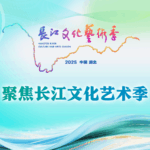The former “King of Bean Skin” Lao Tongcheng.
In Hankou’s Huangshi Road, the “Tongcheng Yinxiang” commercial street has been newly decorated and opened on May 1st this year.
Elder Zeng Xiande sorting through old family photos.
Remembering the history of the War of Resistance, nurturing a deep sense of patriotism.
The history of the War of Resistance is a heroic history written in blood, a tearful history woven from the fates of countless families.
On the occasion of the 80th anniversary of the victory of the Chinese People’s War of Resistance Against Japanese Aggression and the World Anti-Fascist War, this series of reports titled “Family and Nation Over 80 Years” revisits unforgettable moments of national struggle through the stories of 10 families, documenting their lives today. These 80 years represent not only the perseverance of each family but also the indomitable spirit of the Chinese nation.
Interviewee: Zeng Xiande, descendant of “Lao Tongcheng”
Interview location: Wuhan City
Wuhan’s summer nights are sizzling, and the “Lao Tongcheng · Tongcheng Yinxiang” block in Jiang’an District bustles with activity.
This architectural complex, styled after the Republic of China era, is now a new commercial landmark of old Hankou. A casual snapshot captures the blend of century-old establishments like Lao Tongcheng with futuristic cyber-themed shops.
On July 2, 82-year-old Zeng Xiande, grandson of Lao Tongcheng’s founder Zeng Houcheng, shared the family stories behind three sets of “heirlooms.”
First Heirloom: The Patriotic Song Collection “Everyone Sing,” Edited by His Father, with Prefaces by Guang Weiran and Xian Xinghai
“I was born in 1943, when my parents were refugees in Chongqing.” Despite his age, Zeng Xiande speaks clearly, transporting listeners back in time.
Ninety-six years ago, his grandfather Zeng Houcheng founded the “Tongcheng Eatery” on Dazhi Road in Hankou. Having left rural Caidian to seek a livelihood in Hankou, he worked diligently to establish this small shop.
“By the 1930s, the eatery flourished, expanding into Tongcheng Restaurant and later the Dazhi Hotel.” Zeng Xiande noted that among his grandfather’s five children, the eldest daughter graduated from Fudan University, while the eldest son and second daughter enrolled at Wuhan University.
“My father, Zeng Zhaozheng, was the eldest son, studying mechanical engineering at Wuhan University.” Zeng recalled his father as a progressive youth deeply involved in patriotic movements. After bringing back patriotic songs like “The March of the Volunteers” from Shanghai, his father taught them at schools, organizing singing activities to inspire patriotism.
In early 1937, his father was expelled from school under suspicion of being a communist. In protest, his second aunt Zeng Zhuheng and her friend Li Xingfu withdrew from university. His uncle Zeng Youcheng was severely beaten and forced out of school for participating in the December 9th Movement. “With three children suddenly out of school, my grandfather coughed up blood from distress,” Zeng said. “But my father persisted—he carried the sheet music of ‘The March of the Volunteers’ into factories and schools to teach singing.”
Zeng Xiande explained that his grandparents’ simple sense of justice shaped the family’s strong stance. Their restaurant and hotel became safe havens for patriots, student unions, and underground activists, earning the nickname “Patriotic Hotel.”
“One afternoon in October 1937, Xian Xinghai sat at a table in Tongcheng Restaurant, pulling out crumpled lyrics for ‘Guerrilla Song.’ He tapped a rhythm with chopsticks and composed the tune in under five minutes.” Zeng Xiande recounted his father’s stories. “That night, my father and others printed the ‘Everyone Sing’ songbook, which spread quickly among amateur choirs. The collection, co-edited by my father and uncle-in-law Li Xingfu, featured prefaces by Guang Weiran and Xian Xinghai, whose words still resonate: ‘Use resistance music as a weapon to achieve national liberation!'”
“In 1938, as Wuhan became the wartime capital, Dazhi Hotel turned into a unique ‘meeting room.'” Figures like Guo Moruo, Guang Weiran, and Tian Han frequented the place, while Zeng Zhaozheng organized mass singing groups like the “Amateur Choir” and “March





